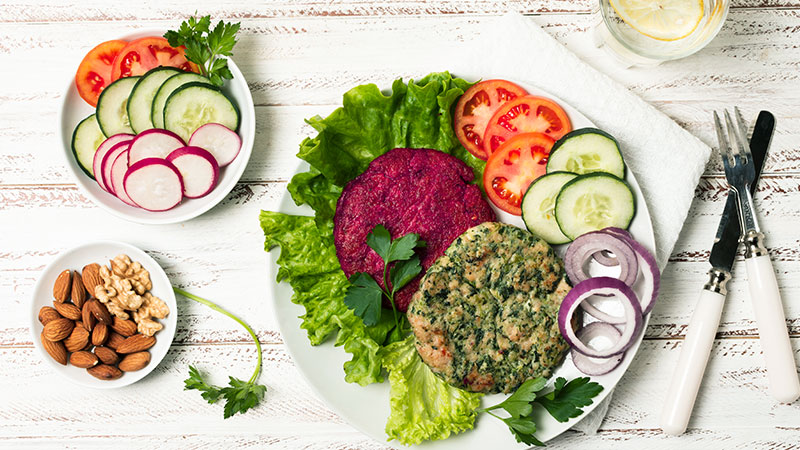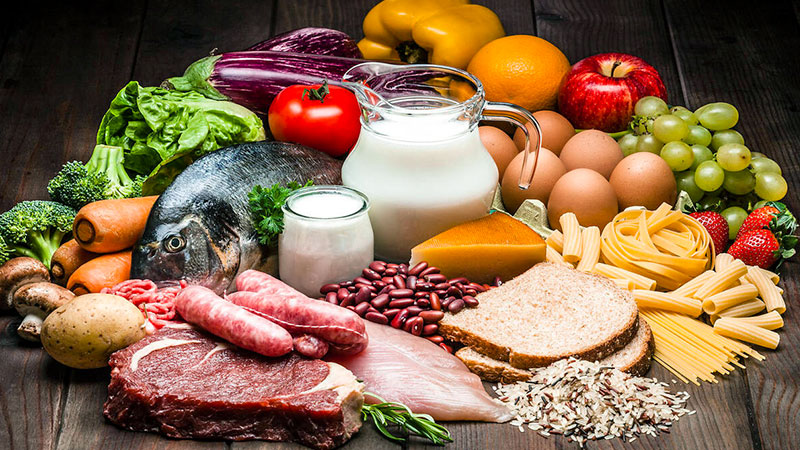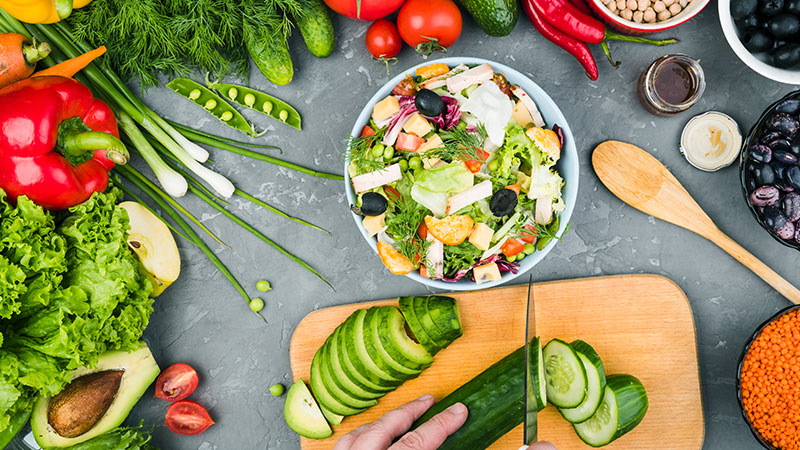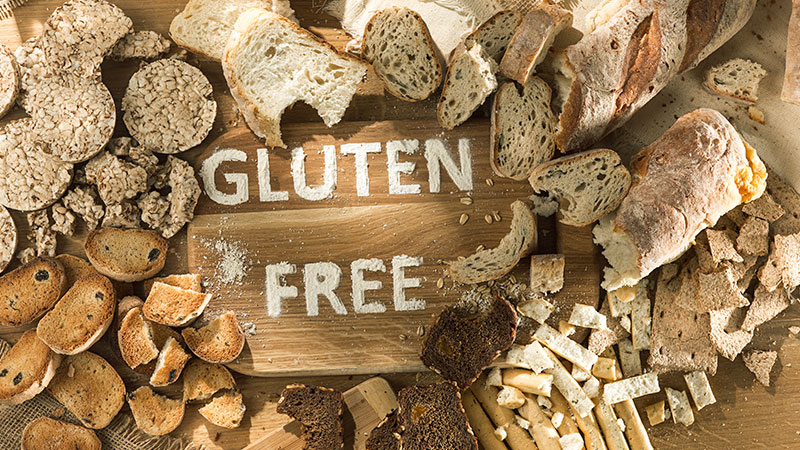Navigating the world of diets can feel like a daunting task with so many options out there promising quick fixes. But here’s the secret: true health and wellness come from finding a diet that’s truly nutritious and can fit into your life long-term.
The best diets aren’t about cutting out everything you love but about making smart choices that feed your body well and keep you feeling great.
Think about balanced meals, paying attention to what you eat, and finding what works best for you. The right diet helps you reach your health goals while still enjoying life.
In this article, we’ll dive into effective dieting tips, share practical advice, and set you on the path to a healthier lifestyle. We’ll look at popular diet plans, the goodness of whole foods, and why staying hydrated is essential.
By knowing what your body needs and tuning into its signals, you can make choices that feel good and are good for you. So, let’s get started on this journey together, giving you the tools and knowledge for lasting wellness.

Why Is a Diet Important?
A diet is crucial as it forms the foundation of overall health and well-being. The food we consume supplies essential nutrients like vitamins, minerals, proteins, carbohydrates, and fats.
A balanced diet ensures we obtain these nutrients in the correct amounts, supporting critical bodily functions such as energy production, immune defense, and cellular repair.
Here’s why diet is crucial:
Disease Prevention
A healthy diet significantly reduces the risk of chronic diseases, including heart disease, diabetes, and cancer.
Incorporating a variety of fruits, vegetables, whole grains, and lean proteins into your diet can provide effective protection against these health conditions.
Weight Management
Proper nutrition is essential for maintaining a healthy weight and preventing obesity-related health issues.
As obesity rates continue to rise, adopting a balanced diet can significantly reduce the risk of complications associated with excess weight.
Mental Well-being
Diet also impacts mental health. Nutrient-rich foods enhance mood and cognitive function, resulting in improved mental clarity, reduced stress, and overall emotional well-being.
Digestive Health
Fiber-rich foods such as whole grains, legumes, and vegetables enhance digestive health, prevent constipation, and support a balanced gut microbiome.
Immune Support
A diet abundant in vitamins, minerals, and antioxidants bolsters the immune system, enabling the body to combat infections and recover from illnesses more efficiently.
12 Best healthy and effective diets Of 2024
Eating healthily can lead to long-term wellness and happiness. Here’s a look at the top diets for 2024.
1. The Mediterranean Diet

This diet emphasizes fruits, vegetables, whole grains, nuts, and legumes. Olive oil is the primary cooking fat. Protein comes mainly from moderate amounts of fish and lean poultry.
Red and processed meats are limited. Added sugars and highly processed foods are avoided. Saturated fats and refined carbohydrates are also restricted. Wine is consumed in low to moderate amounts, usually with meals.
2. The DASH Diet

Whole grains, lean meats, poultry, and fish are staples of the DASH diet. It calls for daily servings of fruits and vegetables. Potassium-rich foods help maintain healthy blood pressure.
Low-fat or fat-free dairy products and certain fats and oils are permitted in moderation. Fatty meats, full-fat dairy, and sweets are limited. Tropical oils are restricted, and sodium intake is capped at 2,300 milligrams per day.
3. The Flexitarian Diet

This diet emphasizes fruits, vegetables, whole grains, and legumes, with protein primarily from eggs and dairy, and occasional small portions of meat.
It limits red and processed meats, saturated fats, sodium, and added sugars while restricting sugar-sweetened foods, beverages, and refined grains.
The approach encourages balanced, fiber-rich, and nutrient-dense meals to promote overall health and sustainable weight loss, emphasizing hydration with water as the main beverage and complementing the diet with regular physical activity for a healthy lifestyle.
4. The MIND Diet

A healthy brain is the focus here. At least two servings of vegetables are recommended daily, including one serving of leafy greens.
Two to five servings of berries are suggested each week. Whole grains should be eaten three or more times daily.
Five or more servings of nuts or seeds are recommended weekly. The diet includes at least three to four servings of beans per week. Seafood should be eaten at least once a week, and poultry at least twice.
5. Pescatarian

Fruits, vegetables, whole grains, nuts, and legumes are key components. Fish is the primary source of animal protein. Shellfish is also included.
A variety of fish and seafood are encouraged. Eggs and dairy are part of the diet. Meat like beef, chicken, and pork are restricted.
To promote optimal health, it’s essential to choose lean cuts and limit processed meats. Reducing intake of sugary beverages and snacks is also advised. Incorporating these balanced choices leads to long-term benefits.
6. Vegetarian Diet

This diet encourages consuming fruits, vegetables, grains, legumes, nuts, and seeds. Healthy fats from avocados and olive oil are included.
Meat, fish, and poultry are eliminated. Variations include lacto-ovo-vegetarian (dairy and eggs allowed), lacto-vegetarian (dairy allowed), and ovo-vegetarian (eggs allowed).
To ensure balanced nutrition, it’s essential to monitor protein intake and consider fortified foods or supplements for vitamin B12, iron, and omega-3 fatty acids. Consulting a healthcare professional can help tailor the diet.
7. Volumetrics

Foods with low energy density are emphasized, categorized into four groups based on energy density. Low-fat dairy, lean protein, and whole grains are encouraged in moderation, while breads and fatty meats are portion-controlled.
Adding water to food is common. Desserts, roasted nuts, and high-fat meats are limited. Incorporating fruits and vegetables enhances satiety and provides nutrients.
Regular physical activity is recommended to complement dietary changes for overall health and weight management.
8. WeightWatchers

The diet features a customized “Points” budget. Different foods are assigned different point values based on calories and nutritional content.
A one-month subscription costs $23 with a $20 starter fee. A six-month subscription costs $15 per month. WeightWatchers also offers a weight loss program with medications for those who qualify.
9. TLC Diet

This diet recommends decreasing saturated fats to less than 7% of daily calories. Total fat should be 25%-to-35% of daily calories.
Dietary cholesterol intake is limited to less than 200 milligrams per day. Adding 5-to-10 grams of soluble fiber daily is advised. Plant sterols and stanols should be consumed at 2 grams daily. Sodium intake stays under 2,300 milligrams per day.
10. Paleo Diet

The Paleo diet focuses on unprocessed foods that resemble those available to humanity’s paleolithic ancestors.
This approach promotes significant weight loss and overall health improvement. It’s the world’s most popular diet currently.
Other popular diets include the Mediterranean diet, which emphasizes whole grains, fruits, vegetables, and healthy fats. Each diet has unique benefits and potential drawbacks, making personalized choices essential.
11. Gluten-Free Diet

This diet is essential for those intolerant to gluten, found in wheat, rye, and barley. For optimal health, focusing on whole foods that are naturally gluten-free is crucial.
Avoiding gluten-free junk food is recommended. Incorporating fresh fruits, vegetables, lean proteins, and gluten-free grains like quinoa and rice can make a significant difference.
This approach not only ensures balanced nutrition but also supports overall well-being.
12. Vegan Diet

The vegan diet has seen a surge in popularity over the past decade. It’s linked to weight loss, improved heart health, and better blood sugar control.
The diet eliminates all animal products and relies solely on plant foods. Additionally, it encourages the consumption of whole grains, legumes, fruits, and vegetables, which are rich in essential nutrients and fiber. However, it’s crucial to ensure adequate intake of vitamin B12.
Practical Tips For A Healthy Diet
Adopting a healthy diet doesn’t need to be complicated. By focusing on practical strategies, anyone can make nutritious choices without feeling overwhelmed.
Eating On A Budget
Eating well on a budget is entirely possible with careful planning. Choose whole foods like vegetables, grains, and beans which are often more affordable than processed items.
Planning meals ahead of time cuts down on impulse buys. Utilizing grocery store sales and buying in bulk lowers costs further. Cooking at home saves money and allows better control over ingredients.
Staying Hydrated
Proper hydration is essential for overall health. Drinking water throughout the day prevents dehydration and keeps the body functioning optimally.
Carrying a reusable water bottle helps track intake and ensures consistent hydration. Consuming foods with high water content, such as fruits and vegetables like cucumbers and oranges, contributes to daily fluid intake.
The Importance Of Breakfast
Eating breakfast kick-starts the metabolism for the day. A balanced breakfast that includes protein, whole grains, and fruits or vegetables keeps energy levels stable.
Options like oatmeal with berries, yogurt with nuts, or whole-grain toast with avocado provide essential nutrients. Skipping breakfast can lead to overeating later in the day, negatively impacting overall health.
By integrating these practical tips into daily routines, maintaining a healthy diet becomes achievable for everyone.
Lifestyle Considerations
Lifestyle factors play a crucial role in the effectiveness of any diet. To ensure sustainable health and well-being, integrating diet changes with everyday lifestyle practices is essential.
Getting Active
Regular physical activity significantly contributes to maintaining a healthy weight. Engaging in exercises such as walking, running, cycling, and strength training helps burn calories, increase metabolism, and improve cardiovascular health.
At least 150 minutes of moderate-intensity aerobic activity each week is recommended for adults, according to the CDC. Also, incorporating activities like yoga or stretching can improve flexibility and reduce stress, aiding overall well-being.
Finding The Right Diet For You
Choosing a diet that aligns with individual health goals and preferences ensures long-term adherence. Personalized diets consider factors like age, sex, metabolic rate, and food intolerances.
Consulting with a nutritionist can provide tailored dietary recommendations. Popular diet options include Mediterranean, low-carb, and plant-based diets, each offering unique benefits.
For example, the Mediterranean diet emphasizes whole foods, healthy fats, and lean proteins, which reduce the risk of chronic diseases.
Frequently Asked Questions
What is a nutritious and sustainable diet?
A nutritious and sustainable diet includes a balanced intake of macronutrients (carbohydrates, proteins, and fats), plenty of fruits and vegetables, whole grains, and healthy fats, often found in diets like the Mediterranean diet.
Why is mindful eating important?
Mindful eating helps you enjoy your food more and listen to your body’s hunger and fullness cues, which can prevent overeating and promote better digestion and satisfaction.
How can I maintain a healthy weight?
Maintaining a healthy weight involves balanced eating, regular physical activity, and choosing a diet that aligns with your health goals and preferences, like low-carb or plant-based diets.
What role does physical activity play in well-being?
Physical activity helps to maintain a healthy weight, boosts mental health, enhances mood, and reduces the risk of chronic diseases.
How can I make healthy food choices on a budget?
To eat well on a budget, plan meals ahead, buy seasonal produce, use coupons, buy in bulk, and prioritize whole, unprocessed foods.
Why is breakfast important?
Breakfast kickstarts your metabolism, provides essential nutrients for the day, and can improve focus and performance throughout the morning.
Conclusion
Adopting a healthy and effective diet is essential for long-term health and well-being. Making informed food choices, balancing macronutrient intake, and incorporating physical activity are key factors.
Personalizing dietary plans with the help of a nutritionist and opting for diets that align with personal preferences, such as Mediterranean, low-carb, or plant-based, can be highly effective.
Strategies like budget-friendly eating, staying hydrated, prioritizing breakfast, understanding portion control, and avoiding processed foods contribute to overall health.
Focusing on nutrient-dense foods and listening to hunger cues can help create a sustainable and enjoyable eating pattern.
